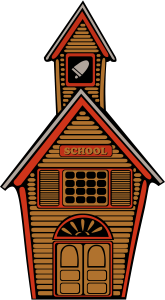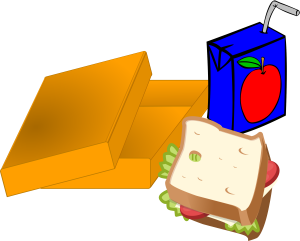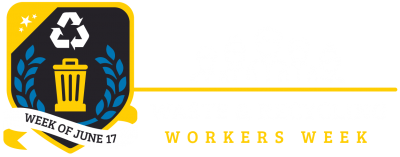Garbage Workers Help Recycling in Schools
 A school is a place where students learn reasoning skills, socialization, hard work and discipline. With so many materials going into a functioning school, it is a vital area that recycling should be taught as well as actively practiced.
A school is a place where students learn reasoning skills, socialization, hard work and discipline. With so many materials going into a functioning school, it is a vital area that recycling should be taught as well as actively practiced.
Did you know:
- The average school tosses 38 tons of paper, the equivalent of 644 trees, each year?
- In 2007, 23 percent of the solid waste received at landfills was recyclable paper?
- Food scraps make up an estimated 32 percent of a school’sgarbage?
- Food scraps plus compostable food soiled paper products can comprise more than 50 percent of a school’s garbage?
- Every ton of paper (or 220,000 sheets) that is recycled saves approximately 17 trees?
Recycling in the classroom
The classroom is a perfect place to promote recycling awareness with students. Teachers of all subjects can make recycling fun through creative projects that not only help the environment, but also to give kids an exploratory approach to how anything can be reused and recycled.
Recycling Drive
A competitive project between classes or grades. Kids can bring in recyclable products–such as tin cans, cardboard cartons and plastic bottles–and donate them to the local recycling center. At the end of the week, whichever class logged the most recyclables wins, and the winning class can be treated to a pizza party. A drive is an excellent way to build unity in a classroom and teach kids the ability to recognize recyclable products.
Pretty Planters
Make flower or herb pots out of old tin or coffee cans to create beautiful planters. Painting the cans allows children to be artistic. Besides creating the planters, plant flower bulbs or herb seeds in them. This project instructs kids how to re-use products and also how to care for plant life. Also, teach kids how to make their own compost for planting, which is another effectual way to recycle old food and trash.
Make a Robot
Middle-schoolers can express their creative side by building their own robot out of recycled cans and cardboard. Collect cardboard cartons and boxes–such as milk cartons or old shoe boxes–along with soda cans, tin cans, pet food cans, and foil to construct their very own robot. For eyes and arms use old buttons or twisted up pieces of newspaper, respectively. Once they’ve constructed the body, set out paint and have them customize their robot.
Recycled Bird Feeder
For a project that teaches kids how to recycle old products as well as help some of the wildlife in the area, construct a bird feeder out of old plastic bottles or milk cartoons. Make feeders by filling the recycled containers with seeds, poking holes in them and hanging them up outdoors. Paint the bottles or cartons with pretty designs beforehand to add some beauty to the feeders. After the feeders are hung, kids will enjoy bird-watching. To learn about local birds, have the students record the different birds they see.
Donation Drives
Set up donation boxes of gently used school supplies. Backpacks, lunch boxes, Unused notebooks and pencils are all great items to give away to families that may not have the means to afford new supplies each year.
School-wide Recycling
School districts that wish to learn how to begin a school-wide recycling program has several resources that will make getting started easy and effective. A great place to begin research on the best method is the recycling department at a local council. Many waste management authorities will also have insight into what tools will be needed. Some points to consider when starting a recycling campaign are:
 Access – are there any restrictions in terms of timings and vehicle access to your school site?
Access – are there any restrictions in terms of timings and vehicle access to your school site?- Frequency – how often will your recycling be collected?
- Storage – where will your school store materials for recycling?
- Health and safety – discuss issues with your school’s health and safety representative.
- Budget considerations – how much will the recycling service cost? Can costs be offset against savings in your general trash collection?
Helping our children understand the importance of recycling and conserving resources will be vital in growing constant awareness of how what we do affects our neighbors, our world, and our future.

I had no idea that there was that much paper thrown away by schools. It seems like the idea of recycling in the classroom would be really beneficial. It would be good to help with some of that rubbish! Thanks for sharing this article.